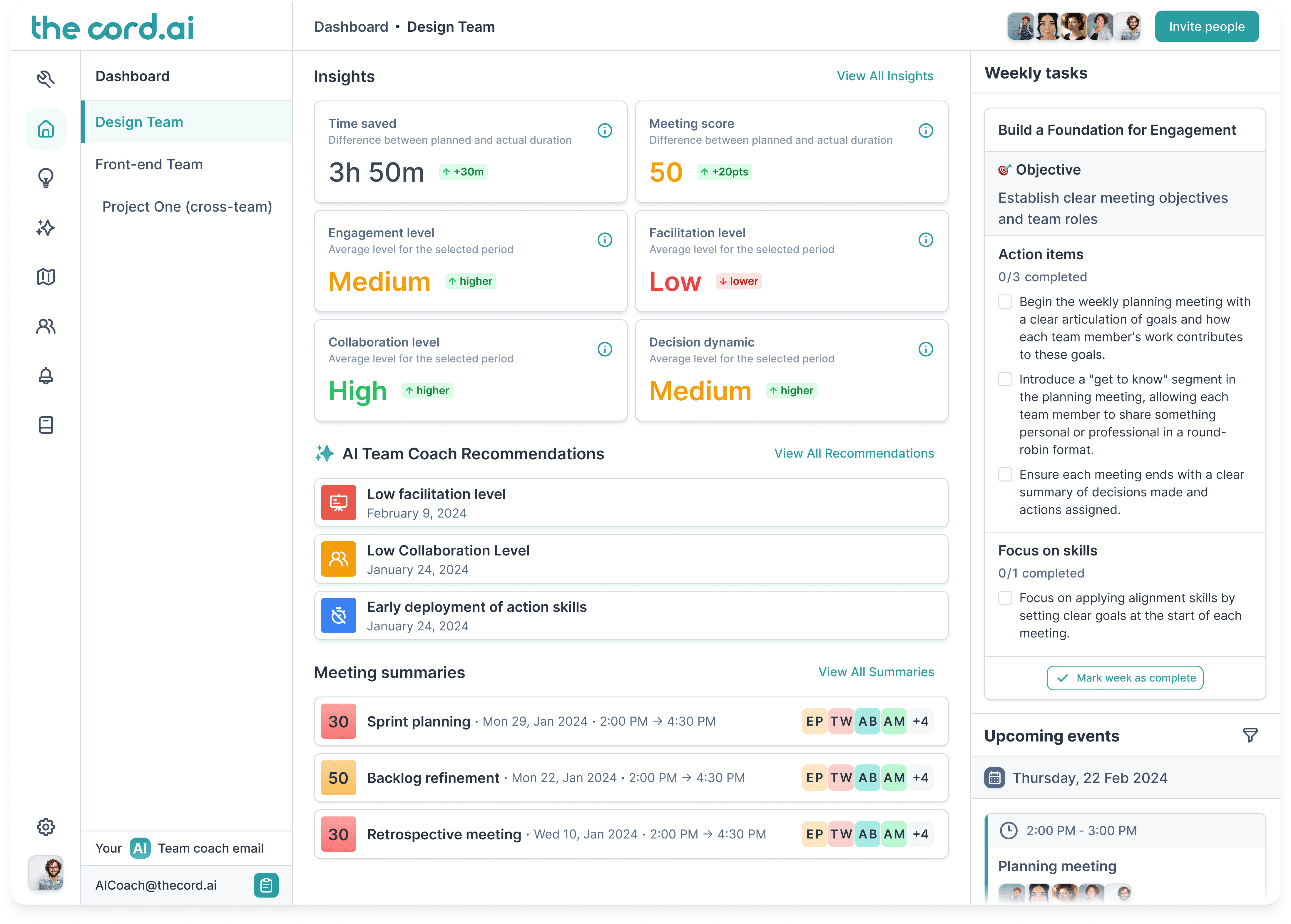Our co-founder Ruxandra Cord🫀 joined #FairDialogues and Oana Iordachescu for an insightful conversation on the future state of collaboration and inclusion within remote work environments.
Full LinkedIn LIVE session video 👉🏼 https://lnkd.in/dTFsMbxa
Here are some of the key takeaways for optimising your team's dynamics:
1. Cultivate a culture of psychological safety: Knowing that the Slack police is a real thing, establishing an organisational culture where team members feel empowered to express diverse perspectives without fear of reprisal is foundational. Encouraging an environment of open dialogue and mutual respect nurtures trust and stimulates innovation.
2. Harness the power of transparent communication: Effective communication lies at the heart of successful remote collaboration. By championing transparent communication channels and cultivating an ethos of ethical sharing, leaders can forge deeper connections and engender a sense of belonging among team members. The how and the where!
3. Champion empathy and emotional intelligence: Leadership in remote settings demands heightened emotional intelligence and a keen understanding of diverse cultural nuances. Leaders who prioritise empathy and demonstrate authentic care for their teams cultivate an environment of trust and camaraderie.
4. Embrace asynchronous collaboration tools: Leveraging asynchronous communication tools facilitates seamless collaboration across geographically dispersed teams. By embracing these technologies, organisations enable team members to contribute meaningfully at their own pace, thereby fostering a culture of flexibility and autonomy.
5. Empower introvert voices: Recognising the valuable insights and perspectives that introverted team members bring to the table is key. By creating inclusive spaces where introverts feel valued and empowered to contribute, organisations unlock a wealth of untapped potential and drive innovation.
6. Institutionalise feedback mechanisms: Implementing structured feedback mechanisms is essential for continuous improvement in remote teams. By soliciting input from team members and iteratively refining processes, organisations foster a culture of learning and agility. Adopt a system and stick to it for a while.
7. Foster a culture of lifelong learning: Cultivating a culture of continuous learning and skill development is as important as ever in remote work environments. Providing access to high-quality training programs and resources empowers employees to adapt to evolving challenges and excel in their roles.
8. Promote inclusive decision-making: Inclusive decision-making processes ensure that diverse voices are heard and respected within the organisation. By fostering an environment where all perspectives are valued, leaders drive innovation and foster a culture of collaboration. Models such as RACI, RAPID, PUGH or BRAIN can be a good place to start experimenting.
9. Leverage technology for enhanced efficiency: Embracing cutting-edge technologies, such as AI-driven collaboration tools, holds the key to unlocking new levels of efficiency and productivity in remote teams. By harnessing technology to automate routine tasks and streamline workflows, organisations empower their teams to focus on high-impact initiatives. A reality if you are looking for speed and little friction.
10. Nurture a cohesive organisational culture: Building and nurturing a cohesive organisational culture is essential for distributed teams to thrive. By actively shaping the cultural fabric of the organisation and fostering a sense of belonging among team members, leaders cultivate an environment where innovation flourishes and business objectives are achieved.











